Welcome to Yang-Sheng! 《養生》欢迎您!
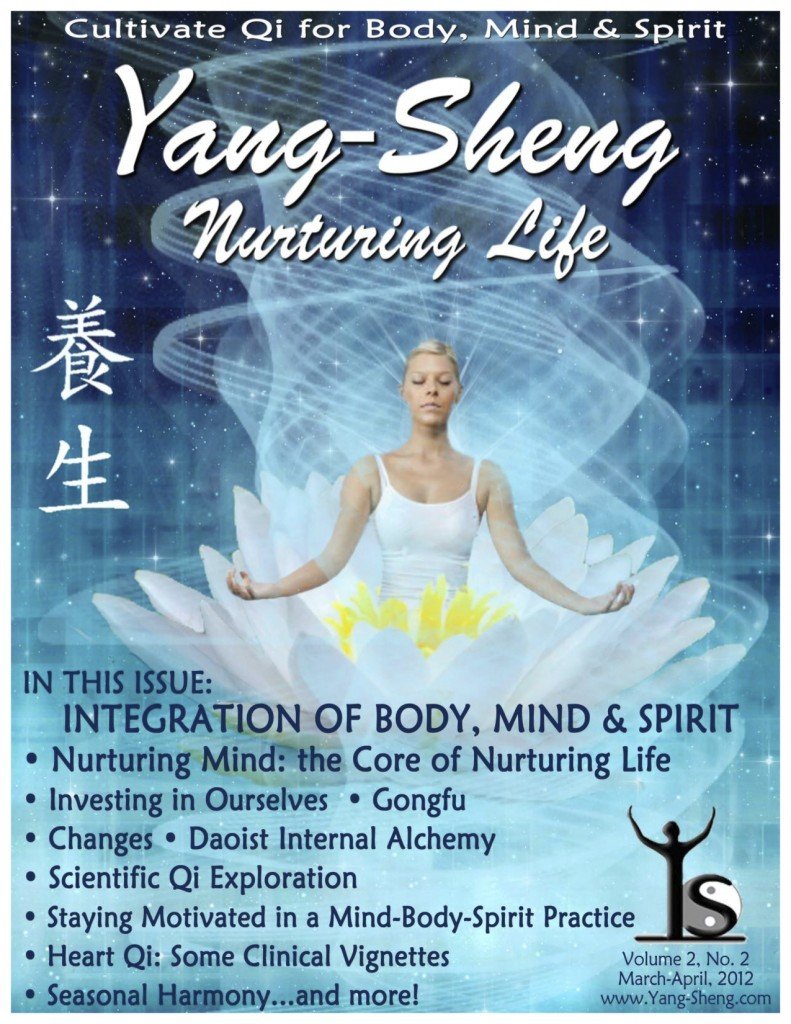 Yang-Sheng (Nurturing Life) is an E-magazine and a network for all healthcare professionals of preventive medicine, practitioners of mind-body exercise (such as Qigong, Tai Chi, Yoga, Reiki, mindfulness and meditation), health seekers, and spiritual cultivators. It promotes philosophy and methods of self-healing, positive mind and health preservation, and shares knowledge and experiences with those who are interested in the subjects and their applications in everyday life.
Yang-Sheng (Nurturing Life) is an E-magazine and a network for all healthcare professionals of preventive medicine, practitioners of mind-body exercise (such as Qigong, Tai Chi, Yoga, Reiki, mindfulness and meditation), health seekers, and spiritual cultivators. It promotes philosophy and methods of self-healing, positive mind and health preservation, and shares knowledge and experiences with those who are interested in the subjects and their applications in everyday life.
Yang-Sheng merges traditional life-nurturing knowledge with modern scientific research and clinic evidence, and combines ancient wisdom with our own experience to support our daily practice and well-being, and to reach true meaning of health in body, mind and spirit… Your contribution, participation, sharing and suggestions are truly appreciated.
Yang-Sheng magazine will be published bimonthly in 2012.
Download the March/April issue of Yang-Sheng as a PDF
Read the March/ April issue as a flip book
 [From the Editor] by Rebecca Kali, Editor-in-Chief – Welcome to the March-April issue of Yang Sheng! The theme this month is “Integration of Body, Mind and Spirit.” What does it really mean when our body, mind and spirit are integrated? What supports it? Webster defines integrated “as combining or coordinating separate elements so as to provide a harmonious, interrelated whole.” If our body, mind and spirit are not integrated are we disintegration? There certainly are many factors in our modern culture to make a person feel that way, sort of like our “particles” are not all together, fragmented. How do we get them back together? That has been a lifetime’s quest for many; searching everywhere for the key to one’s own wholeness, completeness, balance, healing. Looking outside of ourselves – when we really had all we needed – were all we needed – all the time. Yang-Sheng practices supply the missing key.
[From the Editor] by Rebecca Kali, Editor-in-Chief – Welcome to the March-April issue of Yang Sheng! The theme this month is “Integration of Body, Mind and Spirit.” What does it really mean when our body, mind and spirit are integrated? What supports it? Webster defines integrated “as combining or coordinating separate elements so as to provide a harmonious, interrelated whole.” If our body, mind and spirit are not integrated are we disintegration? There certainly are many factors in our modern culture to make a person feel that way, sort of like our “particles” are not all together, fragmented. How do we get them back together? That has been a lifetime’s quest for many; searching everywhere for the key to one’s own wholeness, completeness, balance, healing. Looking outside of ourselves – when we really had all we needed – were all we needed – all the time. Yang-Sheng practices supply the missing key.
 [Featured Article] Nurturing Mind is the Core of Nurturing Life (Yang Sheng) by Kevin W Chen, Ph.D. – Yang Sheng (養生) – nurturing life or cultivating health, may be the most important concept in traditional Chinese medicine (TCM) and Chinese health culture. It inherently includes three interrelated components: nurturing body, nurturing mind and nurturing spirit; all necessary for a healthy life. Here Dr. Chen discusses the significance of nurturing mind in the process of nurturing life.
[Featured Article] Nurturing Mind is the Core of Nurturing Life (Yang Sheng) by Kevin W Chen, Ph.D. – Yang Sheng (養生) – nurturing life or cultivating health, may be the most important concept in traditional Chinese medicine (TCM) and Chinese health culture. It inherently includes three interrelated components: nurturing body, nurturing mind and nurturing spirit; all necessary for a healthy life. Here Dr. Chen discusses the significance of nurturing mind in the process of nurturing life.
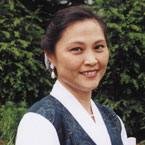 [Simple Natural Healing 简单自然疗法] Food Healing: East Meets West by Aihan Kuhn 爱寒, C.B.D, Dipl., OBT – We frequently hear the saying “You are what you eat.” Even though this is not 100% true, it certainly rings a bell and gets our attention. Food can be our best friend or our worst enemy. Aihan Kuhn, C.B.C. shares info on the healing benefits of Wolfberry (Goji berry, Lycium) and the backyard herb Sweet Violet (Viola species).
[Simple Natural Healing 简单自然疗法] Food Healing: East Meets West by Aihan Kuhn 爱寒, C.B.D, Dipl., OBT – We frequently hear the saying “You are what you eat.” Even though this is not 100% true, it certainly rings a bell and gets our attention. Food can be our best friend or our worst enemy. Aihan Kuhn, C.B.C. shares info on the healing benefits of Wolfberry (Goji berry, Lycium) and the backyard herb Sweet Violet (Viola species).
 [Movement Exploration] How Circularity Leads to Smoother Mind-Body Integrationby Dan Kleiman – When it comes to movement practices like taiji and Qigong, the key to smooth mind-body integration is having more and more circularity in your art. Dan Kleiman offers tips on learning to integrate circularity into your practice and develop the possibility to glide through them more effortlessly, more fluidly, and with a greater sense of internal connection.
[Movement Exploration] How Circularity Leads to Smoother Mind-Body Integrationby Dan Kleiman – When it comes to movement practices like taiji and Qigong, the key to smooth mind-body integration is having more and more circularity in your art. Dan Kleiman offers tips on learning to integrate circularity into your practice and develop the possibility to glide through them more effortlessly, more fluidly, and with a greater sense of internal connection.
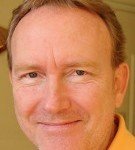 [From the Master] Daoist Internal Alchemy: A Deep Language for Communicating with Nature’s Intelligence (part 3) by Michael Winn – The central purpose of nei dan is to re-grow the spark of Original Energy (yuan Qi) that is buried deep within each human being. If this tiny but powerful spark of original Qi can be birthed into consciousness on Earth, it will gradually dissolve one’s suffering and restore life to its innate state of grace and effortless communication (wu wei) between Heaven, Earth, and Beings. Cultivating yuan Qi is growing Heaven on Earth.
[From the Master] Daoist Internal Alchemy: A Deep Language for Communicating with Nature’s Intelligence (part 3) by Michael Winn – The central purpose of nei dan is to re-grow the spark of Original Energy (yuan Qi) that is buried deep within each human being. If this tiny but powerful spark of original Qi can be birthed into consciousness on Earth, it will gradually dissolve one’s suffering and restore life to its innate state of grace and effortless communication (wu wei) between Heaven, Earth, and Beings. Cultivating yuan Qi is growing Heaven on Earth.
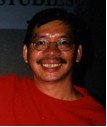 [Taiji and Science] Scientific Taijiquan by Chun Man Sit – Inspired by Master Wu Tu Nan (1884 – 1989) who wrote a book called “The Scientific Way of Taijiquan” back in the 1940’s, shares the importance of practicing Taiji in a scientific way and how understanding the principles of physics and using modern technology such as Video and X-ray can help improve one’s practice.
[Taiji and Science] Scientific Taijiquan by Chun Man Sit – Inspired by Master Wu Tu Nan (1884 – 1989) who wrote a book called “The Scientific Way of Taijiquan” back in the 1940’s, shares the importance of practicing Taiji in a scientific way and how understanding the principles of physics and using modern technology such as Video and X-ray can help improve one’s practice.
 [Echoes of Emptiness 虚之響] Gongfu by Jacob Newell (Gu Shen Yu Daoshi) – Gongfu (功夫) refers to special skill acquired by long, hard practice. Often equated with martial art, it actually applies equally to any kind of skill, such as excelling, creating beautiful art, or delivering an eloquent speech. Understanding the process of developing gongfu is important if we want to achieve excellence in our chosen field. Jacob Newell describes the three essential ingredients needed for developing gongfu.
[Echoes of Emptiness 虚之響] Gongfu by Jacob Newell (Gu Shen Yu Daoshi) – Gongfu (功夫) refers to special skill acquired by long, hard practice. Often equated with martial art, it actually applies equally to any kind of skill, such as excelling, creating beautiful art, or delivering an eloquent speech. Understanding the process of developing gongfu is important if we want to achieve excellence in our chosen field. Jacob Newell describes the three essential ingredients needed for developing gongfu.
 [Research Update] collected by Kevin Chen, Pd.D., MPH – Tai chi and postural stability in patients with Parkinson’s disease. • Impact of Tai Chi exercise on multiple fracture-related risk factors in post-menopausal osteopenic women: a pilot pragmatic, randomized trial. • Mindfulness meditation counteracts self-control depletion. • Fifteen minutes of chair-based yoga postures or guided meditation performed in the office can elicit a relaxation response. • A systematic review of the effectiveness of qigong exercise in supportive cancer care. • Taiji practice attenuates psychobiological stress reactivity – A randomized controlled trial in healthy subjects. • Erratic control of breathing during exercise in patients with systemic lupus erythematosus: a pilot-study. • Effects of an 8-week meditation program on mood and anxiety in patients with memory loss. * Treatment of fibromyalgia at the Maharishi Ayurveda Health Centre in Norway II-a 24-month follow-up pilot study. • A comparative randomized controlled trial of the effects of brain wave vibration training, Iyengar yoga, and mindfulness on mood, well-being, and salivary cortisol.
[Research Update] collected by Kevin Chen, Pd.D., MPH – Tai chi and postural stability in patients with Parkinson’s disease. • Impact of Tai Chi exercise on multiple fracture-related risk factors in post-menopausal osteopenic women: a pilot pragmatic, randomized trial. • Mindfulness meditation counteracts self-control depletion. • Fifteen minutes of chair-based yoga postures or guided meditation performed in the office can elicit a relaxation response. • A systematic review of the effectiveness of qigong exercise in supportive cancer care. • Taiji practice attenuates psychobiological stress reactivity – A randomized controlled trial in healthy subjects. • Erratic control of breathing during exercise in patients with systemic lupus erythematosus: a pilot-study. • Effects of an 8-week meditation program on mood and anxiety in patients with memory loss. * Treatment of fibromyalgia at the Maharishi Ayurveda Health Centre in Norway II-a 24-month follow-up pilot study. • A comparative randomized controlled trial of the effects of brain wave vibration training, Iyengar yoga, and mindfulness on mood, well-being, and salivary cortisol.
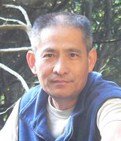 [Ask Dr. Lu] Staying Motivated in a Body/Mind/Spirit Practice by Nan Lu, OMD – At the beginning, Qigong practitioners may feel very motivated, but after a while think “It’s getting repetitive. I know Qigong can do some amazing things for my health, yet sometimes I really don’t feel like practicing.” Nan Lu, OMD offers insightful advice on understanding why we really practice and keeping motivated to do it.
[Ask Dr. Lu] Staying Motivated in a Body/Mind/Spirit Practice by Nan Lu, OMD – At the beginning, Qigong practitioners may feel very motivated, but after a while think “It’s getting repetitive. I know Qigong can do some amazing things for my health, yet sometimes I really don’t feel like practicing.” Nan Lu, OMD offers insightful advice on understanding why we really practice and keeping motivated to do it.
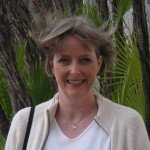 [Learn about Dao] Daoist Body Cultivation and Behavioral Kinesiology- part 1 by Livia Koh n, Ph.D. – “Every man, woman, and child holds the possibility of physical perfection: it rests with each of us to attain it by personal understanding and effort.” F. M. Alexander. Daoist practice proceeds on three levels: healing, longevity, and immortality, three different stages of perfection and empowerment along the same continuum of the human body, which consists of Qi in various degrees of subtlety and refinement. Quite independent of the Chinese and Daoist understanding of body and Qi, the Western science of behavioral kinesiology developed a system that is surprisingly similar, equally valid and supports everything Daoists have been saying all along about the nature of body, self, and society.
[Learn about Dao] Daoist Body Cultivation and Behavioral Kinesiology- part 1 by Livia Koh n, Ph.D. – “Every man, woman, and child holds the possibility of physical perfection: it rests with each of us to attain it by personal understanding and effort.” F. M. Alexander. Daoist practice proceeds on three levels: healing, longevity, and immortality, three different stages of perfection and empowerment along the same continuum of the human body, which consists of Qi in various degrees of subtlety and refinement. Quite independent of the Chinese and Daoist understanding of body and Qi, the Western science of behavioral kinesiology developed a system that is surprisingly similar, equally valid and supports everything Daoists have been saying all along about the nature of body, self, and society.
 [East-West Perspectives] Investing in Ourselves by Arthur Rosenfeld – In the consumptive frenzy of our so-called culture our innate desire to improve ourselves has been transformed into a desire to improve our material position. Those who stand to gain from our assets and efforts have duped the rest of us into believing that growing horizontally, which is to say increasing our material footprint on the world, is a satisfactory substitute for growing vertically by increasing in wisdom, knowledge, peace, compassion, and illumination. Arthur Rosenfeld offers sage advice on the wisdom and benefits of redirecting our efforts from compulsion to internal awareness, from materialism to spirituality.
[East-West Perspectives] Investing in Ourselves by Arthur Rosenfeld – In the consumptive frenzy of our so-called culture our innate desire to improve ourselves has been transformed into a desire to improve our material position. Those who stand to gain from our assets and efforts have duped the rest of us into believing that growing horizontally, which is to say increasing our material footprint on the world, is a satisfactory substitute for growing vertically by increasing in wisdom, knowledge, peace, compassion, and illumination. Arthur Rosenfeld offers sage advice on the wisdom and benefits of redirecting our efforts from compulsion to internal awareness, from materialism to spirituality.
 [Seasonal Harmony] What’s Your Food’s Nature? by Ellasara Kling – The nature of foods, based on Five Element Theory, is categorized by essential temperature. Not the temperature as it comes from the oven or freezer, but rather the innate essence of the food itself. The essential natures of food are cold, cool, neutral, warm and hot. It’s easy to know what some foods are, such as chili peppers, but others are a little more difficult. Ellasara Kling offers some “rule of thumb” ways of recognizing a food’s innate temperature using Yin/Yang principles.
[Seasonal Harmony] What’s Your Food’s Nature? by Ellasara Kling – The nature of foods, based on Five Element Theory, is categorized by essential temperature. Not the temperature as it comes from the oven or freezer, but rather the innate essence of the food itself. The essential natures of food are cold, cool, neutral, warm and hot. It’s easy to know what some foods are, such as chili peppers, but others are a little more difficult. Ellasara Kling offers some “rule of thumb” ways of recognizing a food’s innate temperature using Yin/Yang principles.
 [TCM Food Therapy] Chinese Food Therapy for Asthma by Helen Hu, OMD – The prevalence of asthma now affects an estimated 4-7% of the worldwide population and more than 20 million people in the US. Helen Hu, OMD offers insight into the causes of Asthma from the perspective of TCM as well as healing recipes for Ginger Rice Soup, Sang Ye Peanuts, Eight Treasure Chicken, Walnut Duck, Pumpkin Dates and more.
[TCM Food Therapy] Chinese Food Therapy for Asthma by Helen Hu, OMD – The prevalence of asthma now affects an estimated 4-7% of the worldwide population and more than 20 million people in the US. Helen Hu, OMD offers insight into the causes of Asthma from the perspective of TCM as well as healing recipes for Ginger Rice Soup, Sang Ye Peanuts, Eight Treasure Chicken, Walnut Duck, Pumpkin Dates and more.
 [From the Doctor] Heart Qi: Some Clinical Vignettes – Body Mind Spirit … Heart! by Nadia Linda Hole, MD – “The root of all disease is in the mind, in the emotions,” quote fromTae Woo Yoo, OMD, founder KHT. Nadia Linda Hole, MD shares case studies and asks, “No matter what symptoms your clients present – What’s the root source? What’s their Heart of Hearts truly asking for?”
[From the Doctor] Heart Qi: Some Clinical Vignettes – Body Mind Spirit … Heart! by Nadia Linda Hole, MD – “The root of all disease is in the mind, in the emotions,” quote fromTae Woo Yoo, OMD, founder KHT. Nadia Linda Hole, MD shares case studies and asks, “No matter what symptoms your clients present – What’s the root source? What’s their Heart of Hearts truly asking for?”
 [Happiness in Your Life] Changes by Doe Zantamata – Routine can feel secure. It’s familiar, we know what to expect. But, “routine” is not the way the world works. The world is constantly changing. Doe Zantamata explores our relationship with change. Becoming as curious and comfortable with change as you were when you were a child is a major life skill.
[Happiness in Your Life] Changes by Doe Zantamata – Routine can feel secure. It’s familiar, we know what to expect. But, “routine” is not the way the world works. The world is constantly changing. Doe Zantamata explores our relationship with change. Becoming as curious and comfortable with change as you were when you were a child is a major life skill.
[Scientific Qi Exploration] Scientific Qi Exploration Part 18.  Relations between the Yin (Zhang) Organs by Martin Eisen, Ph.D. – Chinese medicine regards the body as a unified whole. It is not enough to just understand the different functions of individual Organs, but also how they interrelate. Health depends upon the maintenance of a proper balance between the Organs. Pathology also depends on their mutual influence. Martin Eisen, Ph.D. shares information on the interrelationships of the Yin Organs.
Relations between the Yin (Zhang) Organs by Martin Eisen, Ph.D. – Chinese medicine regards the body as a unified whole. It is not enough to just understand the different functions of individual Organs, but also how they interrelate. Health depends upon the maintenance of a proper balance between the Organs. Pathology also depends on their mutual influence. Martin Eisen, Ph.D. shares information on the interrelationships of the Yin Organs.
 [Experience Exchange] An Era of Openness through Raising the Kundalini – by Raven Cohan – What if everyone on this great planet could learn internal ways to heal themselves without even using a single medicine, herb, crystal or anything else external? Is it time? Can there be an era of openness? Can many people now begin to consider practices that have remained hidden? Raven Cohen explores these questions and more…
[Experience Exchange] An Era of Openness through Raising the Kundalini – by Raven Cohan – What if everyone on this great planet could learn internal ways to heal themselves without even using a single medicine, herb, crystal or anything else external? Is it time? Can there be an era of openness? Can many people now begin to consider practices that have remained hidden? Raven Cohen explores these questions and more…
 [Healing Through Science and Spirit] Joy in Recalibrating Bio-Energy Fluctuations by Don E. Brown II, MSIS – “Recalibrate,” a catch phrase often used in relation to needing some adjusting is a call to mindfulness. Don E. Brown II, MSIS describes reaching a threshold in his energy development when “recalibration” was needed and found that although it can be a frustrating task; as we grow our energies and abilities, the art of recalibration goes from a “task” to a profound “joy”.
[Healing Through Science and Spirit] Joy in Recalibrating Bio-Energy Fluctuations by Don E. Brown II, MSIS – “Recalibrate,” a catch phrase often used in relation to needing some adjusting is a call to mindfulness. Don E. Brown II, MSIS describes reaching a threshold in his energy development when “recalibration” was needed and found that although it can be a frustrating task; as we grow our energies and abilities, the art of recalibration goes from a “task” to a profound “joy”.
 [Book Review] Qigong Master: My Life and Secret Teachings by Robert Peng with Rafael Nasser Reviewed by Salvatore Casano, R.N., Ph.D – This is a beautifully written and illustrated book on Qigong. The reader is guided through the experiences of Qigong practice as taught to the author by his Master teacher, Xiao Yao.
[Book Review] Qigong Master: My Life and Secret Teachings by Robert Peng with Rafael Nasser Reviewed by Salvatore Casano, R.N., Ph.D – This is a beautifully written and illustrated book on Qigong. The reader is guided through the experiences of Qigong practice as taught to the author by his Master teacher, Xiao Yao.
[A Comedy Moment] Comedy Moment “Studies show that mirthful laughter, the kind that stems from real joy, relieves stress, lightens mood and confers health benefits.”
Yang-Sheng Needs Your Financial Support — call for support of Yang-Sheng…
Download the March/April issue of Yang-Sheng as a PDF
Read the March/ April issue as a flip book
 Click HERE to subscribe to monthly YS updates for FREE
Click HERE to subscribe to monthly YS updates for FREE
- You are welcome to share Yang-Sheng with your friends in its original form.

- To contribute to Yang-Sheng or contact us, please email to editor@yang-sheng.com
